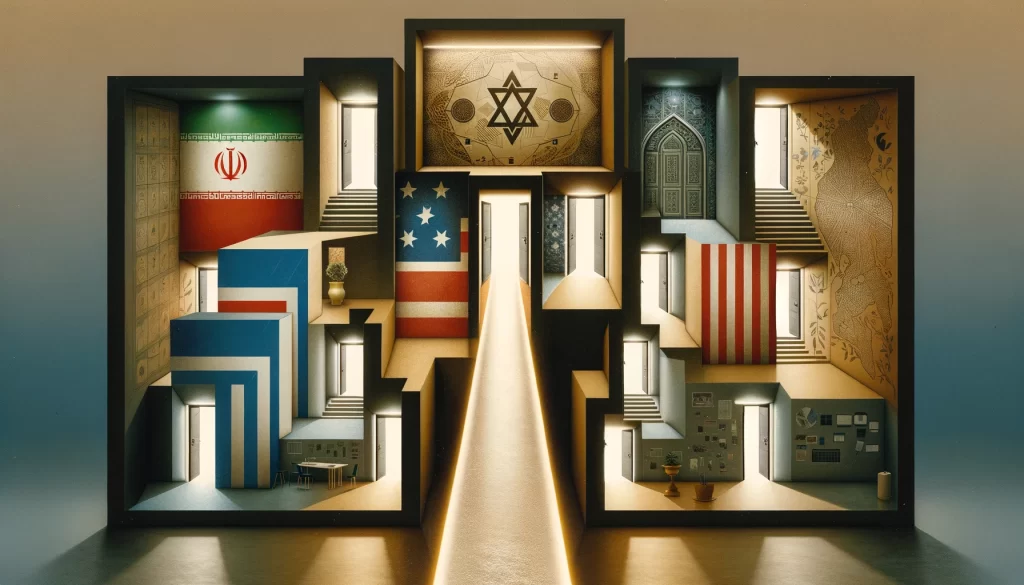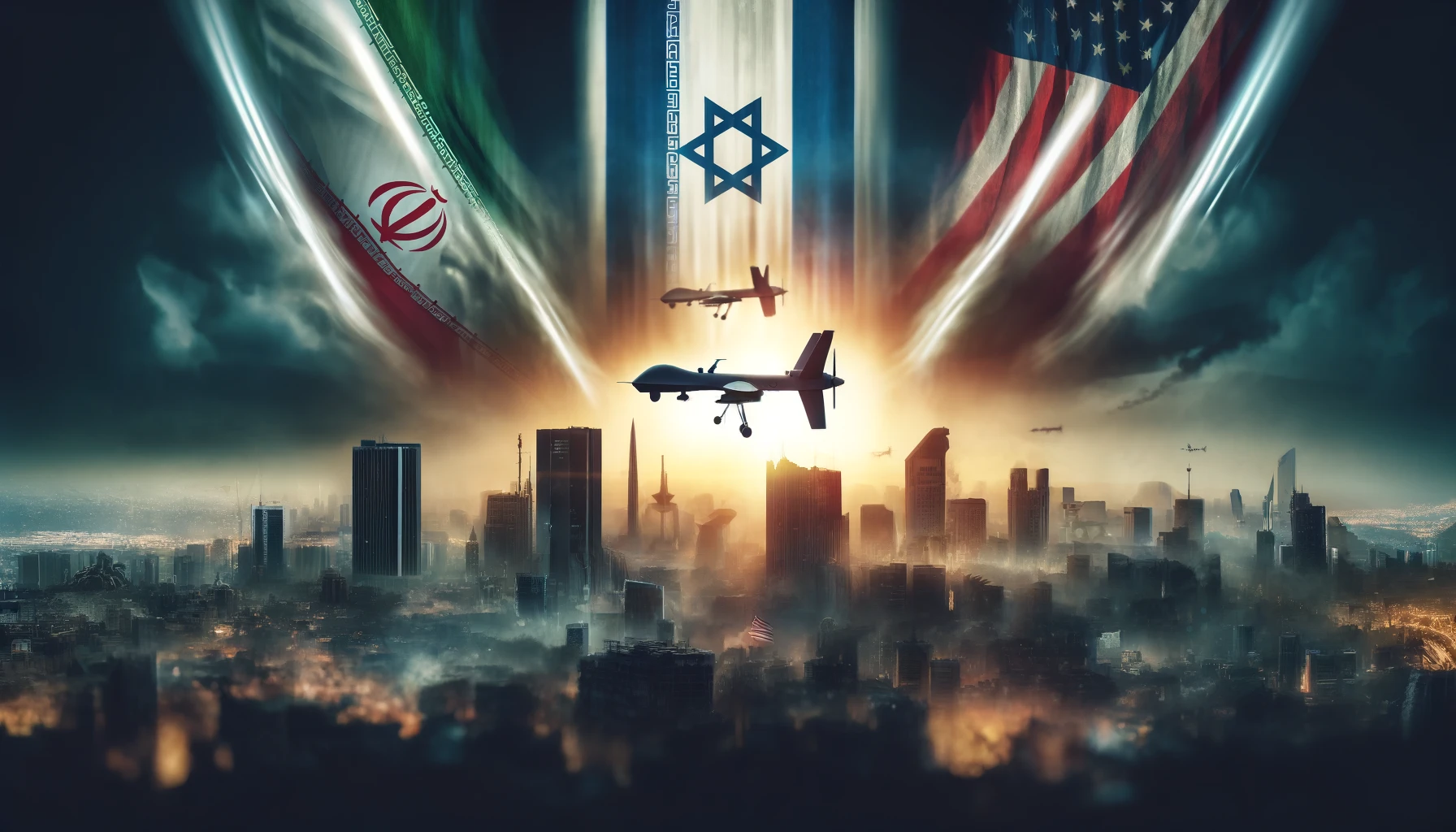Israeli officials announced late Saturday night that Iran launched a drone attack toward Israel. According to the Israeli military spokesperson, Daniel Hagari, these drones would take several hours to reach Israeli airspace. Hagari advised Israelis to remain in safe rooms for at least ten minutes if they hear sirens in their area, signaling an imminent threat.
Simultaneously, Iran’s Islamic Revolutionary Guard Corps confirmed on state television that it had initiated the attack, deploying dozens of drones and missiles aimed at targets within Israel. This statement marks a direct acknowledgment of the military action against Israel.
Addressing the nation, Israeli Prime Minister Benjamin Netanyahu emphasized Israel’s preparedness for various potential threats, both defensively and offensively. He firmly stated, “We have determined a clear principle: Whoever harms us, we will harm them. We will defend ourselves against any threat and will do so level-headedly and with determination.”
This escalation follows an earlier incident on April 1, when an attack on an Iranian consulate in Damascus, Syria, allegedly carried out by Israel, resulted in the death of seven members of Iran’s Revolutionary Guard Corps, including two generals. This incident provoked a vow of retaliation from Iran’s leader, Ayatollah Ali Khamenei.

In the days leading up to Iran’s drone launch, Israeli officials had already heightened security measures, especially near the borders with Gaza and Lebanon. They advised residents to reduce the size of public gatherings and to stay close to shelters. Additionally, schools across Israel were closed through Monday in anticipation of possible attacks.
Israel’s Defense Minister, Yoav Gallant, labeled Iran as a terrorist state and reiterated Israel’s resolve to defend its citizens from such threats, indicating a readiness to respond to the attacks.
In response to the unfolding situation, U.S. President Joe Biden returned early from a trip to Delaware to manage the crisis from the White House. National Security Council spokesperson Adrienne Watson affirmed America’s unwavering support for Israel, stating, “President Biden has been clear: our support for Israel’s security is ironclad. The United States will stand with the people of Israel and support their defense against these threats from Iran.”
The recent attacks are part of a broader escalation in hostilities that began with a conflict between Israel and the Gaza-based militant group Hamas on October 7. This conflict was marked by a significant attack by Hamas that resulted in some 1,200 casualties. Following this, Israel undertook severe military actions against Gaza, which included airstrikes and a ground invasion, resulting in the deaths of more than 33,000 Palestinians and devastating damages.
This article is based on the following article:
https://www.npr.org/2024/04/13/1244641489/iran-israel-drone-attack-middle-east-gaza

Background Information
To fully understand the context of the article about the recent escalation between Israel and Iran, it’s important for readers to have a background on several key topics, including the geography of the region, the history of Israel and Iran’s relations, the role of the United States in Middle Eastern politics, and the significance of groups like Hamas.
Geography of the Middle East
The Middle East is a region that spans southwestern Asia, parts of northeastern Africa, and extends into southeastern Europe. It is a strategically significant area due to its extensive oil reserves and its position as a cultural and religious hub. The region includes countries like Israel, Iran, Syria, Lebanon, and others. Israel is located along the Mediterranean Sea, bordered by Lebanon to the north, Syria to the northeast, Jordan on the east, and Egypt to the southwest.
View Larger Map at OpenStreetMap.
Historical Relations between Israel and Iran
- Israel: Established in 1948 following a United Nations plan to partition Palestine, Israel has faced ongoing conflict with its Arab neighbors and the Palestinian population living within its borders and in adjoining areas.
- Iran: Following the Islamic Revolution in 1979, Iran transformed from a pro-West monarchy under Shah Mohammad Reza Pahlavi to an Islamic republic under Ayatollah Khomeini. The new regime positioned itself against Western influence in the Middle East and specifically against Israel, supporting various anti-Israel groups.
Historically, Israel and Iran were initially on amicable terms. However, after the 1979 revolution, Iran severed all diplomatic ties with Israel and has since recognized Israel as a key adversary, often endorsing and supporting groups opposing Israel.
The Role of the United States
The United States has been a staunch ally of Israel since its foundation, providing extensive military, economic, and diplomatic support. This relationship is driven by a mix of strategic interests, shared democratic values, and influential political lobbying groups. U.S. involvement in the Middle East has often centered around ensuring the security of Israel and maintaining access to oil resources, while also attempting to manage its other strategic relationships in the region, including those with oil-rich Gulf states.
Hamas and Other Militant Groups
Hamas is a Palestinian Islamist political organization and militant group that has controlled the Gaza Strip since 2007. It was founded in 1987 during the First Intifada (Palestinian uprising against Israeli rule in the Palestinian Territories). Hamas is designated as a terrorist organization by Israel, the United States, and the European Union due to its long history of attacks against Israeli civilian and military targets.
Understanding the Current Conflict
The conflict mentioned in the article is a part of the ongoing Israeli-Palestinian conflict and the broader Arab-Israeli conflict. The tensions and events described, such as drone attacks, military retaliation, and political statements, are part of a long-standing cycle of violence and peace efforts in the region.
The situation is deeply influenced by historical grievances, religious significance of the land, and international political maneuvers. Understanding these factors can provide students with a clearer picture of why such events occur and why they are significant on a global scale, affecting not just the region but international relations and global peace efforts.

Debate/Essay Questions
- Should Iran be held solely responsible for escalating tensions in the Middle East due to its drone attack on Israel, or does Israel share some of the responsibility due to its prior actions?
- Is it appropriate for the United States to provide unequivocal support to Israel, or should it adopt a more neutral stance to foster peace in the region?
- Does the media portray conflicts like the Israel-Iran escalation in a balanced manner, or is there a bias towards one side? How does this impact public perception and policy?
- At what point does a nation’s right to defend itself become aggression against another state? Discuss this in the context of the actions taken by both Israel and Iran.
Please subscribe to Insight Fortnight, our biweekly newsletter!
